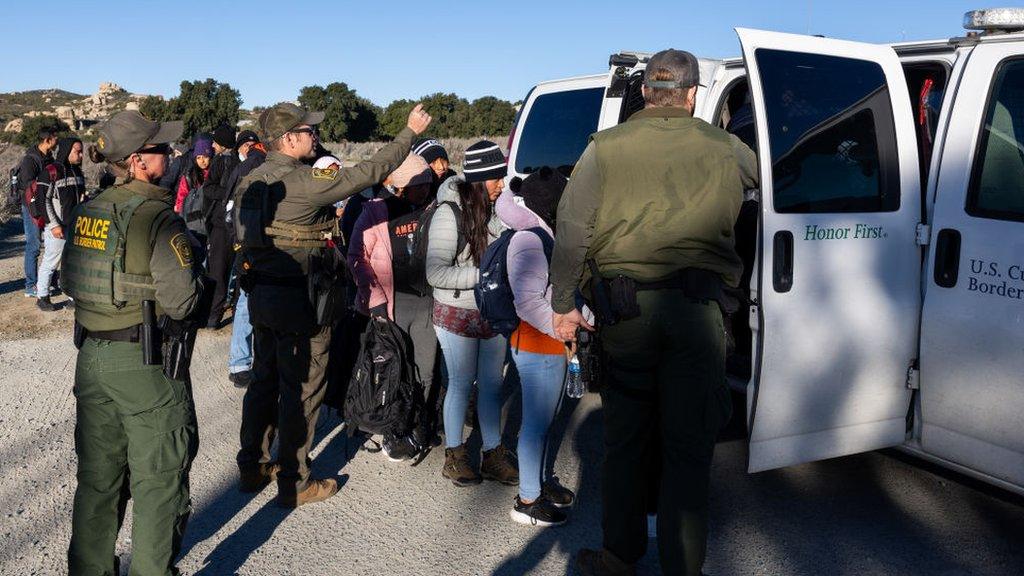Where Biden and Trump differ - and overlap - on immigration policy
- Published
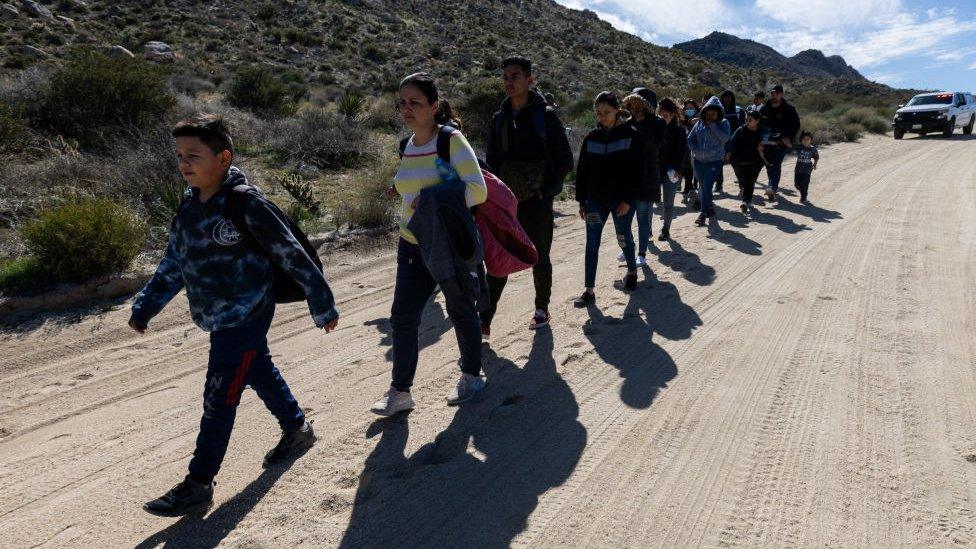
The Biden administration has come under mounting domestic criticism for its handling of the US-Mexico border.
When Joe Biden became president, he promised to undo the strict immigration policies of Donald Trump and take a more "humane" approach.
Despite some successes in changing policies, Mr Biden's wider efforts to reform the country's immigration system have stalled, crushed under the weight of record-breaking numbers of migrants arriving at the US-Mexico border.
Immigration is now a massive political headache for Mr Biden, as well as a political threat, with more than two-thirds of Americans saying they disapprove of his handling of the border.
His predecessor, and potential rival for the White House in November's election, Mr Trump, has seized on the discontent in his current presidential campaign.
Mr Biden has been forced to pivot and move closer to the approaches Mr Trump took in office.
Let's take a look at the top border issues and where Mr Biden and Mr Trump's policies are different, and similar.
Asylum
Under current law, any foreign national arriving to the US can claim asylum. But both the Biden and Trump administrations have sought to control the number of those making that claim through policies such as the Covid-era Title 42 and the "Remain in Mexico" programme.
During his successful White House bid, Mr Biden campaigned against Mr Trump's restrictive asylum policies, particularly the "transit ban" that forbade migrants from applying for asylum unless they first applied before they reached the US border.
Faced with mounting criticism, however, the Biden administration and Democratic allies have suggested asylum provisions similar to Mr Trump's.
A stalled bipartisan border bill, for example, would have tightened asylum restrictions and created daily limits on border crossings. Once that capped was reached, asylum seekers would have been turned away.
Mr Biden said the bill would have allowed him to "shut down" the border when overwhelmed - a drastic change in tone from his campaign.
Another Biden administration rule also means that large numbers of migrants are ineligible to claim asylum if they arrive illegally at border points between ports of entry.
Parole
The Biden and Trump administrations have mostly differed when it comes to parole, where the government allows migrants into the US even if they don't have a visa, or can't qualify for one.
While parole authority has existed since the 1950s, it has been used substantially more during the Biden administration, prompting ferocious criticism from Republicans and Mr Trump.
This includes the humanitarian parole of migrants who have been detained - particularly when they are found to have a credible fear of persecution or torture in their home country.
There are also special, targeted parole programmes for people of specific nationalities, including Afghans and Ukrainians.
As many as 30,000 migrants a month are able to fly to the US legally on parole under the programme for Cubans, Venezuelans, Nicaraguans, and Haitians, sparking a lawsuit from some Republican-led states who say it is illegal.
The scrapped border bill would have kept these programmes in place and allowed parole for those in humanitarian need, but broadly speaking would have restricted its use.
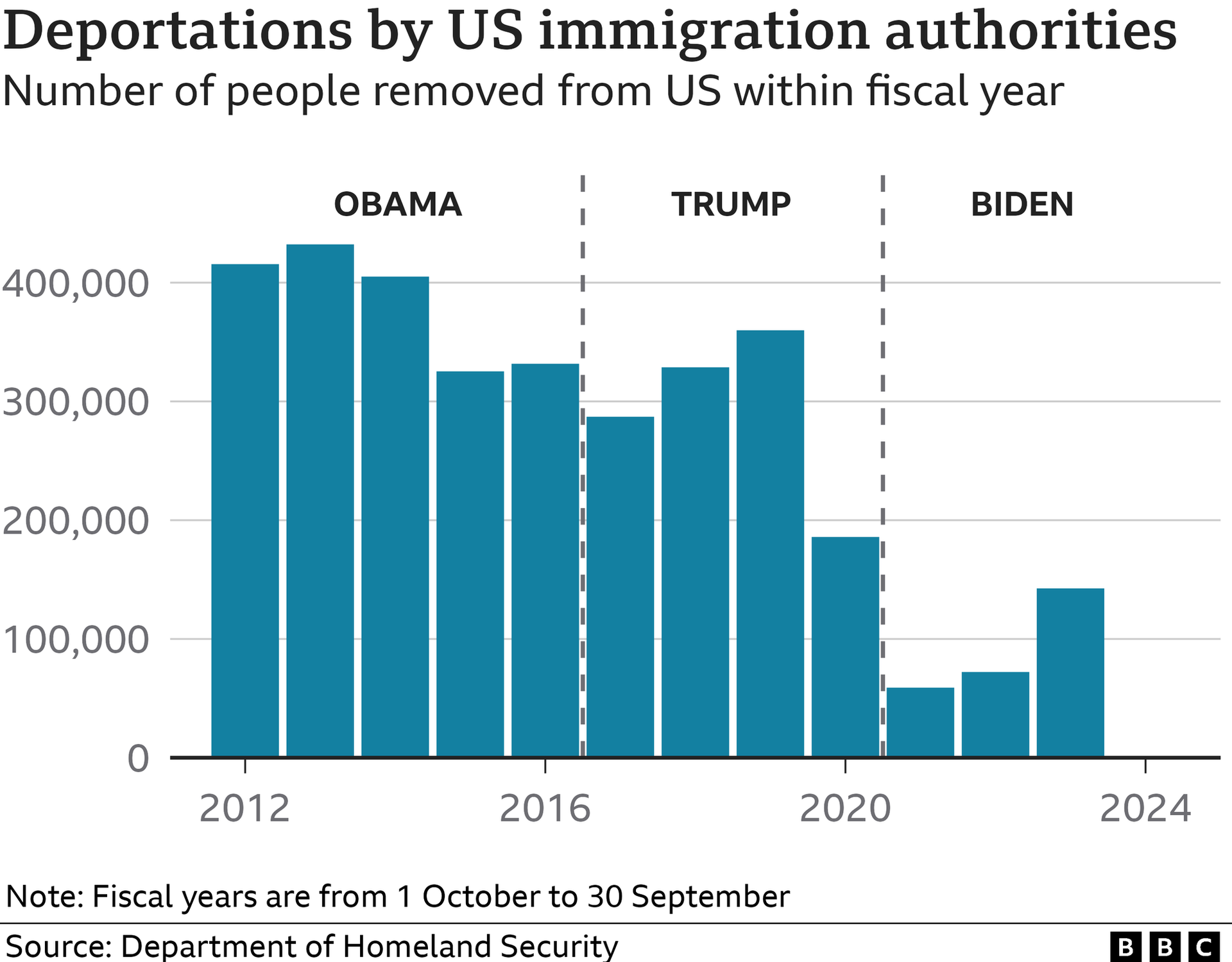
Deportations
When President Biden took office, there was a change of tone and of policy from Mr Trump's administration when it came to deportation, leading to a sharp decline in the number of people being removed from the US.
Additionally, the Biden administration swiftly moved to end the arrest and deportation of migrants in the US interior, a sharp departure from the Trump administration's practices.
The number of deportations has steadily risen since the beginning of the administration, but experts say that is due to high numbers of arrivals at the border rather than increased enforcement in the US.
This has been a key difference between between the two administrations. But the gap may be narrowing slightly, with Mr Biden reportedly mulling executive actions to fast-track deportations for recent arrivals, particularly for those who don't qualify for asylum.
Mr Trump, for his part, has vowed to carry out the "largest deportation operation" in US history to remove undocumented migrants already in the country if he returns to the White House.
He has said he will use the National Guard to carry out his plans, which would come up against legal limits on using US military forces to enforce domestic laws.
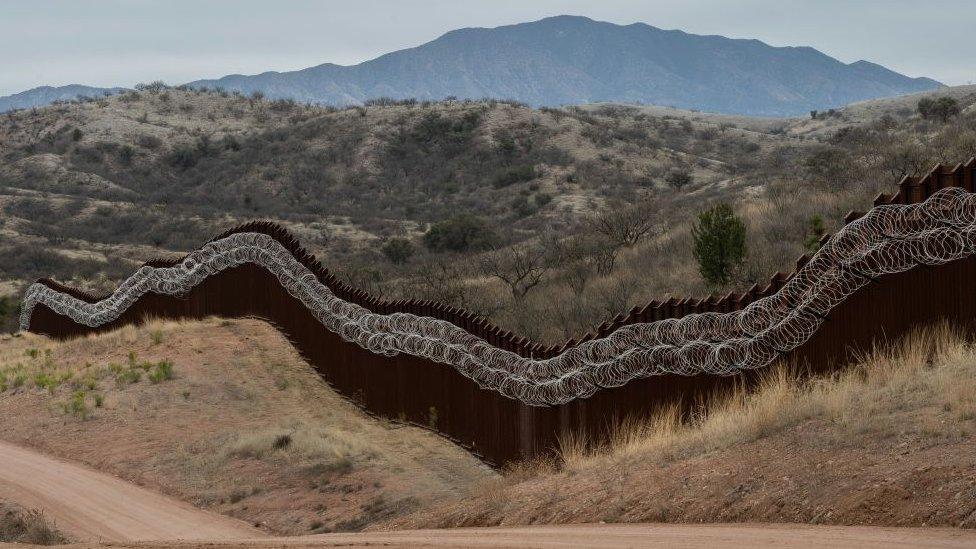
The US-Mexico border has become a political challenge for the Biden administration
Border Walls
Building a border wall was a signature policy of Donald Trump as president and was fiercely opposed by Democrats, including Mr Biden, who vowed to not build "another foot of wall" when he took office.
In October, however, Mr Biden came under fire from both Republicans and Democrats after his administration announced new border wall construction in Texas. Some 20 miles (32km) of barriers will be built in a sparsely populated stretch of the Rio Grande Valley.
Mr Biden said he "had no choice" because funding for the construction was signed off on while Mr Trump was president.
"I tried to get them to redirect that money. They didn't, they wouldn't," Mr Biden said. "I can't stop that."
Since then, no announcements about more barriers have come from the Biden administration.
Mr Trump, for his part, has continued to tout the construction of border walls at campaign rallies across the US.
A poll released by Monmouth University on 27 February found that - for the first time - a majority of Americans support a border wall, with 53% of respondents saying they favour its construction.
Family Separations
Thousands of migrant children were separated from their families as part of the Trump administration's "zero-tolerance" approach at the border.
Mr Trump has hinted that he would take the approach again if re-elected. In November, for example, he told Spanish-language news channel Univision that it had served as a deterrent and "stopped people from coming by the hundreds of thousands."
Soon after taking office, Mr Biden moved to end the separations, which he said were reflective of "the moral and national shame" of Mr Trump's administration.
The Biden administration announced a settlement last October in which family members separated under the previous administration will be given temporary legal and other benefits.
The settlement also bans family separations from taking place in the future.
Related topics
- Published6 October 2023
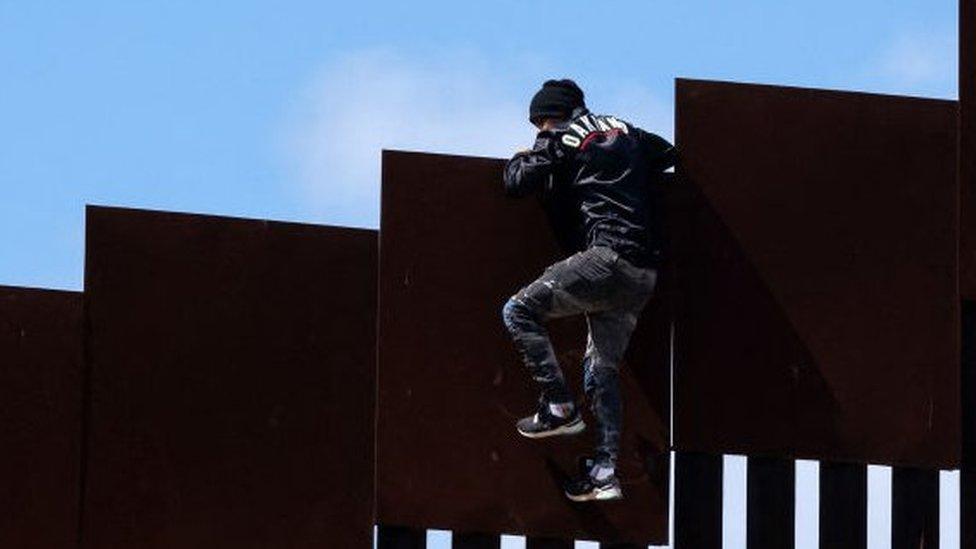
- Published26 February 2024
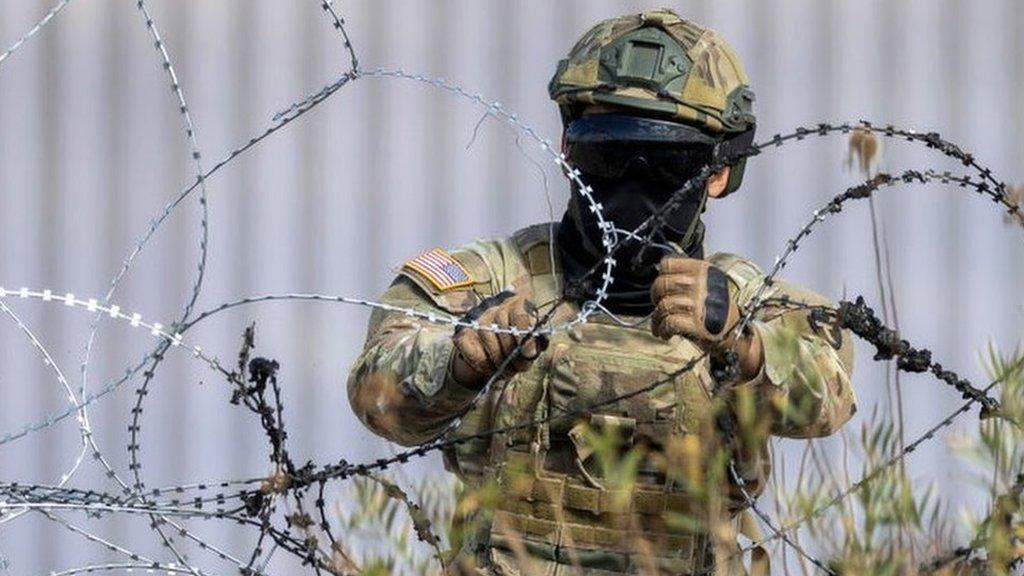
- Published14 February 2024
